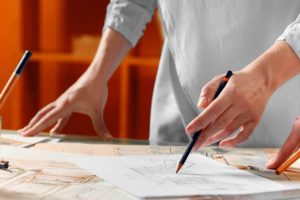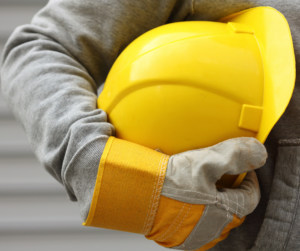Hurricanes are a harsh reality for Florida residents.
The aftermath often leaves homes in ruins, requiring extensive rebuilding.
But who is qualified to undertake this task?
In Florida, a license is required to rebuild homes after a hurricane. This ensures that the work is done safely and to code.
This article will guide you through the process of obtaining a hurricane home rebuilding license in Florida.
Whether you’re a contractor, a construction professional, or a handyman, this information is crucial.
“
Understanding Florida’s Licensing Requirements for Rebuilding After a Hurricane
Florida’s licensing requirements are in place to ensure safety and quality.
They apply to anyone who wants to rebuild homes after a hurricane.
The Florida Department of Business and Professional Regulation (DBPR) oversees these requirements.
They issue licenses to qualified individuals and businesses.
To obtain a license, you must meet certain criteria.
These include passing an exam and proving financial stability.
Here are the key requirements for obtaining a hurricane home rebuilding license in Florida:
- Pass the Florida State Construction Examination.
- Prove financial solvency and stability.
- Show proof of general liability and property damage insurance.
- Provide evidence of workers’ compensation insurance or exemption.
- Complete a background check.
These requirements ensure that only qualified individuals undertake the rebuilding process.
This protects homeowners and maintains the integrity of Florida’s housing stock.
Transferring Your Out-Of-State License
Florida has limited reciprocity with other states for construction licenses. Instead of full reciprocity, Florida offers endorsement or reciprocal agreements for certain types of construction licenses, allowing contractors licensed in other states to apply for a Florida license without re-examination, provided they meet certain conditions. The states with which Florida has established some level of reciprocity or endorsement agreements for construction licenses include:
- Georgia
- Louisiana
- North Carolina
Another way of becoming a Florida Contractor with your out-of-state license is through the National Association of State Contractors Licensing Agencies. NASCLA offers an accredited National Commercial General Building Contractor Exam, which is accepted by several states, allowing contractors to obtain licenses without retaking exams in each participating state.
As of 2024, the states that participate in the NASCLA Accredited Examination Program are:
- Alabama
- Arizona
- Arkansas
- Florida (Florida only accepts NASCLA for electrical contractors, not general contractors)
- Georgia
- Idaho
- Louisiana
- Mississippi
- Nevada
- North Carolina
- Oregon
- South Carolina
- Tennessee
- Utah
- Virginia
- West Virginia
- Virgin Islands
Contractors who pass the NASCLA exam can apply for a license in any of these states without needing to take the state’s specific trade exam. However, they must still meet other licensing requirements, such as financial and experience criteria.
Types of Florida Contractor Licenses for Hurricane Rebuilding
Florida offers several types of contractor licenses.
Each license type corresponds to a specific scope of work.
For hurricane home rebuilding, two types of licenses are most relevant.
These are the Certified General Contractor license and the Certified Building Contractor license.
A Certified General Contractor can work on any type of building.
This includes residential, commercial, and industrial structures.
Here are the key differences between these two license types:
- Certified General Contractor: Can work on any type of building, regardless of height or complexity. This includes residential, commercial, and industrial structures.
- Certified Building Contractor: Can work on residential and commercial buildings that are not more than three stories high. This includes multi-family residential buildings.
Understanding these license types is crucial.
It helps contractors know which license to apply for.
It also helps homeowners know what to look for when hiring a contractor.
The Process of Obtaining a Hurricane Home Rebuilding License in Florida
Obtaining a contractor license in Florida involves several steps.
First, you must meet the basic requirements.
These include being at least 18 years old and having a social security number.
You also need to show proof of financial stability and responsibility.
This includes providing credit reports and proving you have a FICO credit score of 660 or higher.
Here are the steps to obtain a contractor license in Florida:
- Meet the basic requirements (age, social security number, financial stability).
- Complete the required education or experience.
- Pass the Florida State Construction Examination.
- Submit your application to the Florida Construction Industry Licensing Board.
- Provide proof of insurance, including workers’ compensation and liability insurance.
- Pay the required fees.
Once you have your license, you can legally work on hurricane home rebuilding projects.
Remember, it’s important to keep your license current by completing the required continuing education.
Why Hiring Licensed Contractors for Storm Damage Repair is Crucial
Hiring licensed contractors for storm damage repair is crucial for several reasons.
First, licensed contractors have the necessary training and experience to perform the work safely and correctly.
They understand the specific building codes and regulations in Florida, ensuring the rebuilt homes are safe and compliant.
Lastly, hiring licensed contractors protects homeowners from potential legal issues and provides a level of assurance about the quality of the work.
Consequences of Unlicensed Construction Work in Hurricane-Affected Areas
Unlicensed construction work in hurricane-affected areas can lead to serious consequences.
For starters, the quality of the work may not meet the required standards, putting the safety of the homeowners at risk.
Furthermore, unlicensed contractors may not be insured, leaving homeowners liable for any accidents that occur on their property.
Lastly, homeowners may face legal issues if the work does not comply with local building codes and regulations.
How to Verify a Contractor’s License in Florida
Verifying a contractor’s license in Florida is a straightforward process.
The Florida Department of Business and Professional Regulation (DBPR) provides an online tool for this purpose.
Here are the steps to verify a contractor’s license:
- Visit the DBPR’s online services page.
- Click on “Verify a License”.
- Enter the contractor’s name or license number.
- Review the information provided to ensure the contractor is licensed for the type of work you need.
Remember, hiring a licensed contractor is crucial for ensuring quality work and protecting your interests.
The Role of the Florida Department of Business and Professional Regulation (DBPR)
The Florida Department of Business and Professional Regulation (DBPR) plays a crucial role in the construction industry.
It is responsible for licensing contractors, enforcing regulations, and ensuring the safety and quality of construction work in the state.
Legal Requirements for Out-of-State Contractors in Florida
Out-of-state contractors looking to assist in Florida’s rebuilding efforts must adhere to specific legal requirements.
They must obtain a Florida contractor license, comply with local building codes, and meet insurance and bonding requirements.
Locate a Qualifier for your Construction Business
Locating a qualifier for your Florida construction business means hiring or partnering with a licensed individual (the “qualifier”) who meets the state’s requirements to hold a construction license. The qualifier is responsible for overseeing the construction work and ensuring it complies with state regulations.



Leave a Reply
Your email is safe with us.